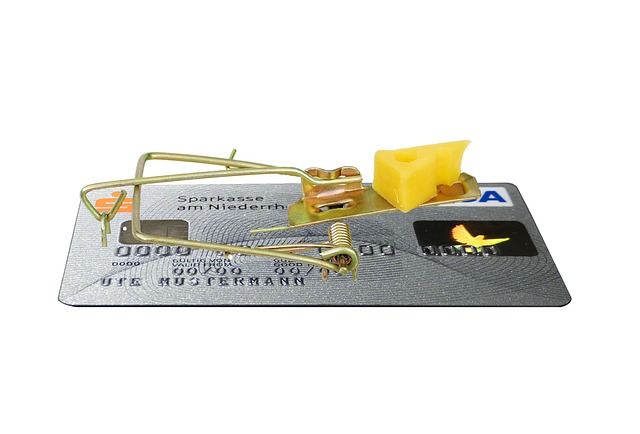There are various types of loans that are relatively easy to obtain, such as payday loans, car title loans, and pawnshop loans. You can also explore options such as personal loans from local banks or credit unions, assistance from charities, payment plans, or paycheck advances. Always assess your financial situation, borrow within your means, and aim for long-term financial stability.
Introduction
When faced with unexpected expenses or financial hardships, finding the easiest loan to obtain can provide much-needed relief. In this article, we will discuss various types of loans that are relatively easy to acquire. From payday loans to personal loans, car title loans to assistance from local organizations, we will explore the pros and cons of each option. However, it is important to note that while these loans may be more accessible, it is crucial to assess your financial situation and borrow responsibly.
Types of Loans That Are Easy to Get
- Payday Loans: Payday loans are short-term loans that typically require repayment with your next paycheck. They are easily obtainable since lenders do not check your credit history. However, due to their high interest rates and fees, payday loans should only be considered as a last resort.
- No Credit Check Loans: These loans, as the name suggests, do not require a credit check. While they may be easier to obtain, they often come with higher interest rates compared to loans that consider your credit history.
- Unsecured Personal Loans: Although unsecured personal loans may have a credit score requirement of 580 or higher, they can still be accessible to individuals with bad credit. These loans, however, do not require collateral, making them riskier for lenders.
- Secured Personal Loans: Secured personal loans are easier to get approved for because they require collateral, such as property or assets, which the lender can seize if the loan is not repaid. By minimizing the lender’s risk, secured loans have relatively lenient approval criteria.
- Loans from Friends or Family Members: Borrowing money from friends or family members can often be an easy and informal solution, as they are typically less concerned with your credit history. However, it is essential to maintain clear communication and repay the loan as agreed to avoid straining relationships.
- Emergency Loans: Emergency loans provide quick access to funds for unexpected expenses such as medical bills, auto repairs, or storm damage. These loans often offer substantial funding, low minimum APRs, and extended repayment periods, making them a viable option for urgent financial needs.
- Hardship Loans from Local Government: Many states offer hardship or disaster loans to support individuals in times of financial difficulty. These loans have eligibility requirements that vary from state to state, but they can provide essential assistance for rent payments or small business support.
- Hardship Distribution from Your 401(k): In cases of immediate financial need, you can withdraw money from your 401(k) account. However, the withdrawal should be limited to the necessary amount, and repayment is not possible. Keep in mind that taxes and penalties may apply.
- 401(k) Loans: A 401(k) loan allows you to borrow money from your retirement account. You must repay the loan, along with interest, within five years to avoid penalties and taxes. While these loans do not require a credit check, they involve potential risks to your retirement savings.
- Car Title Loans: Car title loans allow you to borrow a percentage of your vehicle’s value by using the car’s title as collateral. However, these loans typically come with high monthly finance fees and short repayment terms, so caution is advised.
- Pawnshop Loans: Pawnshop loans involve using personal items as collateral for a loan. If you fail to repay the loan, the pawnshop may sell your item. While these loans offer instant cash, they should be approached with care due to high interest rates.
Other Accessible Loan Options:
- Local Banks and Credit Unions: If you have a relationship with a local bank or credit union, you may qualify for a personal loan with better rates and terms. Contact them to explore the possibilities.
- Local Charities and Nonprofits: Local organizations and nonprofits often provide grants or assistance programs for individuals in need. Check with your local chamber of commerce, library, or dial 211 to inquire about available resources.
- Payment Plans: In situations where you cannot afford to pay a bill in full, consider setting up a payment plan with the company. While there may be additional fees or interest involved, this option often requires no formal application or credit check.
- Paycheck Advances: Requesting a paycheck advance from your employer allows you to access a portion of your upcoming salary, helping you cover immediate expenses without the need for a loan.
Borrow Responsibly and Evaluate Options
Before deciding on an easy loan, it is crucial to evaluate all available options and consider the financial implications. Research each alternative, compare rates, fees, and terms, and assess your own repayment capabilities. Only borrow what you can afford to pay back promptly to avoid worsening your financial situation.
Conclusion
While there are various types of loans that are relatively easy to obtain, it is important to approach borrowing responsibly. Payday loans, car title loans, and pawnshop loans may offer quick funding but often come with high costs. Exploring options such as personal loans from local banks or credit unions, assistance from charities, payment plans, or paycheck advances can provide alternative solutions. Always assess your financial situation, borrow within your means, and aim for long-term financial stability.



